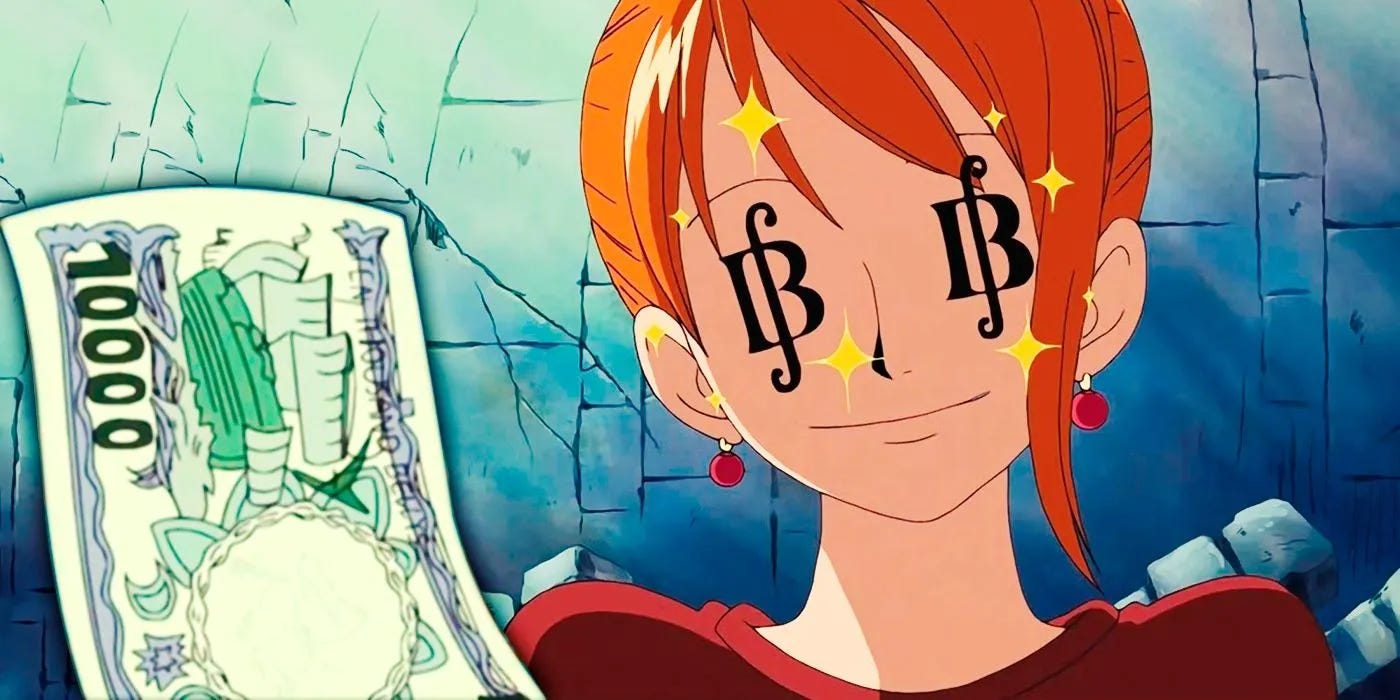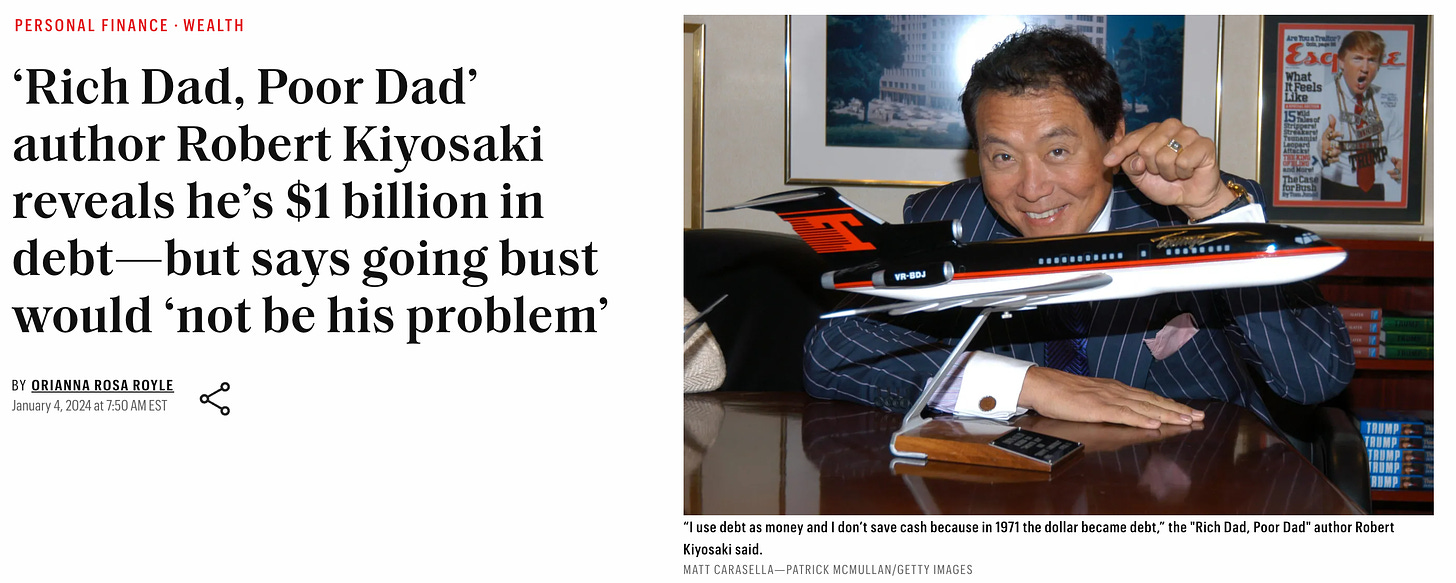dumb money (ep. 0): a personal finance series
a personal finance microseries dedicated to building lasting money habits in your twenties
Hi friends! Welcome to “dumb money,” a personal finance microseries dedicated to building lasting money habits in your twenties.
We can denounce money, pretend that it doesn’t matter, and live on our high horse thinking our time is better spent following our life passion of becoming a seaside wizard off the Amalfi coast.
But whether you like it or not, and whether you realize it or not, we're all playing the money game—a game with clearly defined winners and losers.
In this series, we'll establish straightforward financial routines to achieve the greatest benefits with the least stress and effort. Our time is better spent on matters more significant than personal finance, but it's still something that we can’t afford to completely ignore.
I’m super excited to kick this off and I hope you are too.
The name "Dumb Money" was inspired by the GameStop scandal mockumentary—a comedic yet insightful look into how retail investors shook up the stock market. With Seth Rogan and Pete Davidson in the mix, it was an instant classic.
But did you know that “dumb money” is how institutional investors and mutual fund companies refer to everyday investors? Not surprisingly, these weapons of Wall Street refer to themselves as “smart money.” Quite the self-proclaimed title.
But they do kinda have a point. We are dumb money. You, me, your family, your friends, all of us.
It's not just because we buy and sell stocks at the worst times. That’s just a part of it. We’re dumb money because we make financial decisions based on instinct, emotion, and the full spectrum of our lives' complexities.
We’re dumb money for making inherently human decisions.
You've probably heard (and agree with the idea) that money isn't everything. Unfortunately, that's exactly what makes personal finance tricky.
Life would be a lot simpler if the only thing that mattered was maximizing income and minimizing expenses.
But we all know: the things we value—our relationship with family and friends, the hobbies we can afford to enjoy, and whether we dare to pursue our dreams or not—are, to varying degrees, highly dependent on how much you have squirreled away in your accounts.
enjoying this piece so far? if you haven’t already, click the button below to make sure that you receive my next piece in your inbox. and if you want to read more of my posts, check them out here!
In "dumb money," I want to drive home the fact that we can win the money game with minimal time and effort. Taking inspiration from the group project member who shares out the Google doc and then disappears into the abyss, we too will explore how to lay the groundwork for our success, step back, and allow our investments to grow with time.
Should you trust what I say?
Within my small family of four, my dad is the only one with an interest in finance. He holds a masters in economics, worked at a bank early in his career, and has managed the family finances since the Paleolithic period.
That’s about as far as his credentials go.
I know he’s dabbled a bit with stocks, but he has yet to catch that lucky break in the market. He doesn’t own any real estate or property other than our family home. He doesn’t have a side business. But he is a first-generation Korean immigrant who’s done a splendid job managing a stable life for our family.
Growing up, my dad would drop some financial aphorisms here and there. Nothing quite beats dad lore.
Yet he never imposed his views on me or tried to indoctrinate me with biases. He told me to be careful with the stock market, but that was about it. He didn’t share any strong views on renting vs. buying. He held a few credit cards, but never obsessed over maximizing points.
Through it all, he taught me to be careful with money without stressing out over it.
All this is to say: when I started exploring personal finance my freshman year of college, I went in with a completely open mind. No preconceived expectations from the market. No bias on how to hack the credit card game. No offense taken to renting vs. owning property.
The best way to learn is to try, and boy did I try a bunch of things.
Here is a recap of some of the “work” I put in between 2019-2024:
I’ve read 10+ personal finance books. Some of which were good, most of which were terrible. The worst one by far was “Rich Dad, Poor Dad.” I wonder how the author is doing… Oh.
I’ve invested in 50+ different stocks, crypto, and a bunch of other side projects (Energea and LoftyAI to name a few).
I’ve opened 4 new bank/brokerage/retirement accounts.
I’ve opened 3 new credit cards.
I’ve tried out countless budgeting apps and tactics (r.i.p. Mint).
Through it all, I’ve made some money, lost some money, and really only ended up learning two things:
Good personal finance habits won’t make you rich overnight. This is especially true in your 20s.
All good personal finance habits rely on compounding: compounding interest and compounding habits. These take time and capital to develop.
Bad habits, like ripping degenerate 20-leg same game parlays or going on all-in on NVIDIA, rely on luck. This takes little time and a lot of lost capital to learn a lesson.
The simplest systems are often the most effective.
We fail to do things all the time. We skip working out, forget to check in on our friends, and waste our nights doom-scrolling.
You know what we never fail to do every single day?
The bare minimum.
Fortunately, it's never been easier to do the bare minimum in the world of personal finance. Almost everything can be automated: credit card payments, retirement accounts, personal savings. Doing the bare minimum, I’ve invested 20% of my income into savings and investments, and have never missed a credit card payment. This is just one of many examples, and I’m excited to share my methodology behind everything else.
What’s next?
The two grounding “principles” above will serve as the backbone behind my philosophies and recommendations. In the coming weeks and months, I’ll be going over budgeting, investing, saving, credit cards, and more.
My comments are always open to all users and non-users, so feel free to drop a suggestion anytime about topics you'd like me to explore!
Before we close, I want to share something that I believe down to my core.
The best investment in our 20s is in ourselves.
I believe in this so much that yeah, I’m going to repeat it in italics.
The best investment in our 20s is in ourselves.
Building new skills, traveling to places you haven’t been, focusing on your career, meeting new people; these should be our priority. You really don’t have control over making life changing money. But you do have control over building life changing skills.
Welcome to dumb money!
Here's to proudly being "dumb" together—embracing our humanity, learning from our mistakes, and, step-by-step, crafting a future where we all come out on top.
Not just financially, but in all aspects of our lives.
Ambitious, I know.
I’m just a bit excited—and I hope you are too.







👏
Thanks Raymond! I’d love to hear more advice on choosing credit cards and budgeting apps!